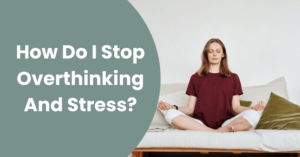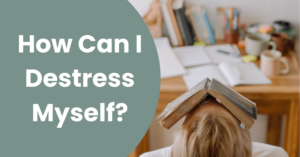Do you feel fatigued, have low mood and anxiety, get sick frequently or have dry, acne-prone skin? This may be a sign you lack certain vitamins.
Vitamins are micronutrients essential for our wellbeing along with minerals and amino acids. Vitamins B, C, D and Q10 may increase energy, boost mood, boost the immune system, support digestion, metabolism, liver, hair, skin, nails, and may prevent diseases. Vitamins function as antioxidants and neutralize free radicals – which potentially can lead to cell damage. Vitamins A, E and K also play a vital role in skin, hair, vision, immune system, blood, bones and wound healing.
In order to address what vitamins make you feel better, we’ll talk about which vitamins may increase energy, boost mood, immune function, and happy hormones, and help during times of stress.
What Is The Main Function Of Most Vitamins?
Vitamins are essential for our health and function as antioxidants and have several important functions in our body. Without vitamins, our body wouldn’t be able to function properly.
Antioxidants neutralize free radicals and protect the cells against oxidation. Oxidation in the cell can potentially harm the cells which may, in worst case, lead to cancer.
Vitamins have hundreds of different roles and are important for:
- Provide energy in our cells
- Protects our cells
- Growth
- Development
- Heal wounds
- Support immune system
- Help metabolize proteins and carbs
- Supports liver function
- Maintain skin, nails and vision
- Support brain and nervous system functioning
- Increase energy
- Improves mood, stress and anxiety
Lack of vitamins through diet or supplementation or simply due to lifestyle factors can affect our well-being tremendously.
The vitamins are divided into water-soluble and fat-soluble vitamins. The water-soluble vitamins are vitamins B and C.
The water-soluble vitamins function as cofactors and are necessary for certain enzymes. The water-soluble vitamins are not stored in the body – we pee them out eventually, why they’re highly necessary through diet or supplementation.
The fat-soluble vitamins are vitamins A, D, E and K. The fat-soluble is naturally stored in our body and is measured in i.e, i.u or microgram.
Besides the vitamins, there are a few substances that act like vitamin-like compounds. These are called PABA (B10), biotin, inositol, choline, alpha lipoic acid and Q10. These vitamin-like compounds are just as important for memory, energy in cells, cell repair and protection, skin, hair, etc.
All vitamins have a specific role, but which ones make you feel better by affecting your mood and energy?
What Vitamins Give You Energy And Make You Feel Good?
Do you wonder what vitamins make you feel better and if Vitamin D Gives You Energy? Vitamins are important micronutrients and if we are extremely tired – What Vitamins Help With Adrenal Fatigue?
I personally believe we need the full spectrum of vitamins through diet and supplementation to feel good, however, a lack of vitamin B, vitamin C, vitamin D and Q10 can decrease our energy levels and affect mood.
Best Vitamins For Energy And Depression
Vitamin B is present in almost all phases of energy metabolism of amino acids, carbohydrates and fatty acids. Every cell needs vitamin B according to PubMed Central.
Lack of vitamin B may lead to:
- Nervous system dysregulation
- Low mood or depression
- Excessive worry
- Confusion
- Stiff joints and muscles
- Constipation
- Insomnia
- Fatigue
- Period problems
And the list goes on…
Disclaimer: The above-mentioned symptoms may also stem from other health-related issues. I recommend you talk to your healthcare provider if you have any health-related concerns.
Vitamin B is a water-soluble vitamin and needs to be consumed from diet or supplementation – lifestyle factors such as diet and stress may decrease vitamin B levels.
Lack of vitamin D may increase fatigue and cause low mood or even depression. Vitamin D plays a role in the immune system, endocrine system, metabolism, mood and pain.
Vitamin D acts more like a hormone, regulating calcium and phosphorus homeostasis through negative feedback.
Lack of vitamin D is a global health issue and up to 1 billion people worldwide suffer from vitamin D deficiency – but why? In my article Does Vitamin D Give You Energy? I’ve explained in depth the critical effects vitamin D deficiency may have on mood and energy levels.
Vitamins For Mood And Stress
Vitamin C is an antioxidant that protects the immune system and cells, liver, and tissue, produces adrenaline and other neurotransmitters and may protect against cancer.
Since vitamin C helps create adrenaline, increased vitamin C intake may increase energy levels.
Vitamin C may make us feel good by protecting the immune system and lack of vitamin C may lead to fatigue, increased risk of infections, out of breath easily, joint pain, inflammation, etc.
I personally believe vitamin C is one of the strongest antioxidants – and some research even suggests that Vitamin C May Help With Weight Loss.
Co-enzyme Q10 also called Ubiquinone is the creator of energy in our cells and is a powerful antioxidant along with vitamin C. Q10 may also work by protecting against cancer and may neutralize free radicals in the cells.
Q10 works by creating energy in the cell’s mitochondria and without Q10 the ‘energy’ in the cells is low. That may lead to muscle fatigue and muscle pain.
Vitamins B, D, C and Q10 are vitamins that I personally highly recommend in increased amounts when dealing with stress, fatigue and depression.
However, I recommend talking to a specialist about nutritional recommendations regarding stress, fatigue and depression – or consult with your local doctor to do bloodwork and treatment if needed.
Vitamins For Happy Hormones
Our hormones need support as well – but which vitamins support our happy hormones?
Our happy hormones are related to the neurotransmitters dopamine, serotonin, oxytocin and endorphins, but Which Makes You Happier; Dopamine Or Serotonin?
Happy hormones – also called neurotransmitters like serotonin and dopamine are mood regulators and have an impact in:
- Stress
- Sleep
- Mood
- Anxiety
- Depression
- Digestion
- Senses
- Thoughts
- Memory
- Feelings
Serotonin is primarily made in the gut and dopamine is created from amino acids with help from vitamins.
Am I Lacking Dopamine Or Serotonin? – If you’re curious and want to read in depth about it, I’ve written a full guide of symptoms, causes, test methods and treatment methods to increase dopamine and serotonin levels.
However, besides diet and lifestyle changes, supplements that may support happy hormones may include:
- Vitamin D
- Omega 3
- 5-HTP
- Probiotic
- Magnesium
- Tyrosine
- L-Theanine
If you’re suspecting an imbalance in serotonin or dopamine, I’ll recommend you testing your organic acids through an OrganiX test – want more information? Book a 20-minute discovery call through my formula.
Final Thoughts
Vitamins are micronutrients important for our well-being – lack of vitamins may lead to fatigue, low mood, weakened immune system, etc.
Besides vitamins B, C, D and Q10 – it’s worth mentioning the effects of vitamins A, E and K.
What Does Vitamin A Do For Your Body? – Vitamin A is also known as retinol stored in the liver and adipose tissue and is released in combination with zinc. Lack of vitamin A may lead to acne, weakened vision, brittle hair and nails, constipation, etc.
Vitamin E is a powerful antioxidant and strengthens the effect of other antioxidants like vitamin C. Lack of vitamin E may lead to infertility, PMS, wounds unable to heal, infections and inflammation.
Lack of vitamin K is often due to diseases in the colon or lack of nutrients – often it’s possible to support vitamin K through supporting the flora through probiotics.
For optimal well being I personally recommend going though your vitamins, minerals, and antioxidants status through a simple blood test.
Vitamins work with other nutrients like minerals and amino acids for energy, mood and to make you feel better.






